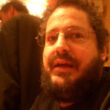Red Moon
(Libby/OverDrive eBook, Kindle)
Available Platforms
Description
More Details
Similar Titles From NoveList
Similar Authors From NoveList
Published Reviews
Booklist Review
*Starred Review* The time: about 30 years from now. China has colonized Earth's moon. Fred Fredericks, an American, is making his first visit to the moon, to work on a new communications system for the Chinese Lunar Science Foundation. It's supposed to be a quick trip and then back home again, but Fred's plans unexpectedly change when he is accused of murder. Before he can be interviewed by the authorities, Fred is spirited back to Earth by Chan Qi, the rebellious daughter of a highly placed politician, who has her own secret purpose in visiting the moon, and Ta Shu, a famous travel journalist (he appeared in the author's 1998 novel Antarctica). Why are these two people risking their own lives to protect a hapless American? What's the hidden agenda here? Robinson, a Hugo and Nebula Award winner for his Mars trilogy, tackles another weighty theme: political rebellion. The subject is a familiar one in science fiction Robert A. Heinlein's classic The Moon Is a Harsh Mistress (1966) and Adam Roberts' Gradisil (2007) are two examples but Robinson plays his own variations on the theme, turning what might have become a been-there-done-that retread into something fresh and exciting. Another stellar effort from one of the masters of the genre.--David Pitt Copyright 2018 Booklist
Publisher's Weekly Review
Although the premise of Robinson's disappointing latest near-future novel-that by 2047 the moon has been colonized by the U.S. and China-is classically science-fictional, the focus remains on projecting those countries' economic and political futures back on Earth rather than on exploring the implications of extraterrestrial human societies. Fred Fredericks, an American, has been sent to the moon to deliver a "mobile quantum key" phone to the Chinese, but when he shakes the hand of Gov. Chang Yazu, both men are poisoned, Chang fatally. American State Department agents try to keep Fred out of Chinese custody as an investigation is launched into the murder, which may implicate a super-secret branch of Chinese intelligence whose desire to militarize the moon was opposed by Chang. Fred ends up fleeing to Earth along with Qi, a woman who illegally got pregnant on the moon. Their narrow escapes become repetitive, and neither character is well-developed, while Robinson's speculations about a future for blockchain governance are interesting but not well integrated into the plot. This dry work is didactic and unremarkable. Agent: Chris Schelling, Selectric Artists Literary & Talent. (Oct.) © Copyright PWxyz, LLC. All rights reserved.
Kirkus Book Review
The murder of a Chinese politician on the moon in the mid-21st century sends a mismatched couple on the run and signals a looming crisis on Earth.American Fred Fredericks is delivering a secure quantum-entangled phone to Chang Yazu, chief administrator of the Chinese Lunar Authority, but the two have barely shaken hands when Chang slumps to the ground, dead by poison. The confused Fred is accused of the crime, a pawn in a power struggle among various Chinese government factions, who also seek control of Chan Qi, the pregnant daughter of a top party official and the leader of a migrant workers rights movement. The two bounce between the Earth and moon and back in search of a safe refuge, aided at times by poet and "cloud star" Ta Shu, a friend of Peng Ling, the strong contender to become China's first woman president. The title initially seems like a call back to the first entry in Robinson's terraforming trilogy, Red Mars, but while the lunar landscape is a source of beautifully described detail and the lower gravity acts as obstacle and asset, this is not a hard sci-fi novel. Rather, it's a political thriller where the moon is a backdrop and game piece for both China and the United States, two powerful nations facing significant political and economic unrest. A white man writing about Chinese politics and mainly Chinese characters could seem questionable in a publishing milieu that still lacks sufficient diverse voices; all one can say is that as per usual for Robinson, it seems well-researched. It is unfortunate that Chan Qi's primary qualities are being pregnant and cranky; while tough and passionate, there's little sign of the charisma typically associated with a populist leader. The more well-rounded Ta Shu is still mostly a plot device: He writes the occasional profound-seeming poem, but he's mainly there to rescue our heroes at various moments and provide the author's desired infodumps on physics and Chinese politics. Fred Fredericks (the white man) is the most intriguingly drawn character. While no explicit diagnosis is given, the author offers a vivid and relatively plausible depiction of a man on the spectrum, with social difficulties and a sensory processing disorder.Not Robinson's (New York 2140, 2017, etc.) strongest work, but not without interest, either. Copyright Kirkus Reviews, used with permission.
Booklist Reviews
*Starred Review* The time: about 30 years from now. China has colonized Earth's moon. Fred Fredericks, an American, is making his first visit to the moon, to work on a new communications system for the Chinese Lunar Science Foundation. It's supposed to be a quick trip and then back home again, but Fred's plans unexpectedly change when he is accused of murder. Before he can be interviewed by the authorities, Fred is spirited back to Earth by Chan Qi, the rebellious daughter of a highly placed politician, who has her own secret purpose in visiting the moon, and Ta Shu, a famous travel journalist (he appeared in the author's 1998 novel Antarctica?). Why are these two people risking their own lives to protect a hapless American? What's the hidden agenda here? Robinson, a Hugo and Nebula Award winner for his Mars trilogy, tackles another weighty theme: political rebellion. The subject is a familiar one in science fiction—Robert A. Heinlein's classic The Moon Is a Harsh Mistress (1966) and Adam Roberts' Gradisil? (2007) are two examples—but Robinson plays his own variations on the theme, turning what might have become a been-there-done-that retread into something fresh and exciting. Another stellar effort from one of the masters of the genre. Copyright 2018 Booklist Reviews.
Library Journal Reviews
On the moon, colonized 25 years previously by the Chinese, we meet big-name travel reporter Ta Shu; American techie Fred Fredericks, in hiding after seeing a murder; and Chan Qi, daughter of the finance minister, whose plan to sneak home sets off a firestorm.
Copyright 2018 Library Journal.Publishers Weekly Reviews
Although the premise of Robinson's disappointing latest near-future novel—that by 2047 the moon has been colonized by the U.S. and China—is classically science-fictional, the focus remains on projecting those countries' economic and political futures back on Earth rather than on exploring the implications of extraterrestrial human societies. Fred Fredericks, an American, has been sent to the moon to deliver a "mobile quantum key" phone to the Chinese, but when he shakes the hand of Gov. Chang Yazu, both men are poisoned, Chang fatally. American State Department agents try to keep Fred out of Chinese custody as an investigation is launched into the murder, which may implicate a super-secret branch of Chinese intelligence whose desire to militarize the moon was opposed by Chang. Fred ends up fleeing to Earth along with Qi, a woman who illegally got pregnant on the moon. Their narrow escapes become repetitive, and neither character is well-developed, while Robinson's speculations about a future for blockchain governance are interesting but not well integrated into the plot. This dry work is didactic and unremarkable. Agent: Chris Schelling, Selectric Artists Literary & Talent. (Oct.)
Copyright 2018 Publishers Weekly.Reviews from GoodReads
Citations
Robinson, K. S. (2018). Red Moon . Orbit.
Chicago / Turabian - Author Date Citation, 17th Edition (style guide)Robinson, Kim Stanley. 2018. Red Moon. Orbit.
Chicago / Turabian - Humanities (Notes and Bibliography) Citation, 17th Edition (style guide)Robinson, Kim Stanley. Red Moon Orbit, 2018.
Harvard Citation (style guide)Robinson, K. S. (2018). Red moon. Orbit.
MLA Citation, 9th Edition (style guide)Robinson, Kim Stanley. Red Moon Orbit, 2018.
Copy Details
| Collection | Owned | Available | Number of Holds |
|---|---|---|---|
| Libby | 2 | 1 | 0 |
































